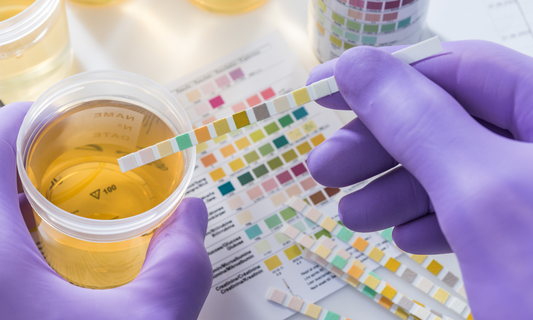Discover the best tips for hydrating effectively!

Hydration is one of the keys to well-being.
Discover how to optimize your hydration with Hydratis .
A well-hydrated metabolism provides numerous benefits for optimizing your daily health and well-being. But how can you stay hydrated and how can you recognize dehydration on a daily basis?
According to the World Bibliography on Hydration, it is found that needs vary from one person to another depending on environmental conditions, physical activity, eating habits and even age.
Certain situations will also generate a greater need: taking diuretic medication, physical exertion, extreme heat or after consuming alcohol are common situations which increase the need for water.
Hydratis is a French company developing easy-to-drink rehydration solutions that provide optimal rehydration. Find Hydratis products in pharmacies or at hydratis.co .
The importance of hydration as we age
Older people are at higher risk of dehydration than adults.
With age, the proportion of water present in the body decreases significantly: from 60% to 50% of body weight, which means that with age it is necessary to pay particular attention to hydration to benefit from a better energy level.
During episodes of diarrhea and vomiting, the risk of dehydration is increased tenfold due to the resulting water loss as well as the loss of minerals and electrolytes.
How to recognize dehydration in everyday life?
- Loss of appetite
- Unusual fatigue
- Headaches
- Unusual drowsiness
- A slight fever
- Dry mouth
Tips for optimizing your daily hydration
To protect yourself from dehydration, it is essential to ensure you consume enough fluids throughout the day.
- Choose fruits and vegetables rich in water
- Drink throughout the day (every hour)
- Increase the amount of water during the summer
- Keep a water bottle with you whenever you go outside
- Choose soups or broths for meals
What are the consequences of dehydration?
- Weaknesses
- Confusion
- Urinary tract infections
- Pneumonia
- Bedsores in bedridden patients
- Emergency hospitalization
Discover Hydratis 50+: the ultra-hydrating drink
Hydratis 50+ is the first rehydration solution for seniors, designed for prevention or treatment of dehydration. It is based on WHO rehydration recommendations and tailored to the needs of adults aged 50 and over.
Hydratis 50+ allows for more efficient and faster assimilation of liquids, adapted to the physiological constraints of those over 50 💦
Dilute one sachet in a glass of water and start each day with a large glass of Hydratis.

Hydratis' mission is to optimize each of your sips with a natural, hypotonic solution, rich in minerals and perfectly adapted to age-related weaknesses.
![]()
Hydratis' second mission is to make you want to drink . To achieve this, the range offers three delicious flavors (with 100% natural aromas) to give you a unique taste experience:
- ANIS (Pastis)
- MINT
- NEUTRAL
Drinking finally becomes a real moment of pleasure!
Experience the new pleasure of drinking by finding Hydratis 50+ at www.hydratis.co or in pharmacies!
Are you dehydrated? Can't drink enough?
Discover the Hydratis 50+ range, specifically developed for rehydration of seniors by clicking here !

* Causes of dehydration in seniors and the elderly:
Seniors often receive a lot of medical treatments, including diuretic medications, which cause a significant elimination of both consumed and stored water from the body.
Loss of thirst is also a cause of dehydration. As we age, we gradually lose this sense of thirst, which is caused by several factors, including impaired motor skills and dry skin and lips.
Elderly people who are losing their independence may have difficulty getting up to get a glass of water, even when they are thirsty.
We also observe a decrease in kidney function with age: the kidneys retain fluids less and less well.
Vomiting or diarrhea, which are associated with various illnesses, can also accelerate dehydration.
Hyperglycemia, the most common form of diabetes in older adults, causes an increase in the frequency and quantity of urination. This loss of fluids in the body, therefore, causes a loss of fluid that can lead to dehydration.











